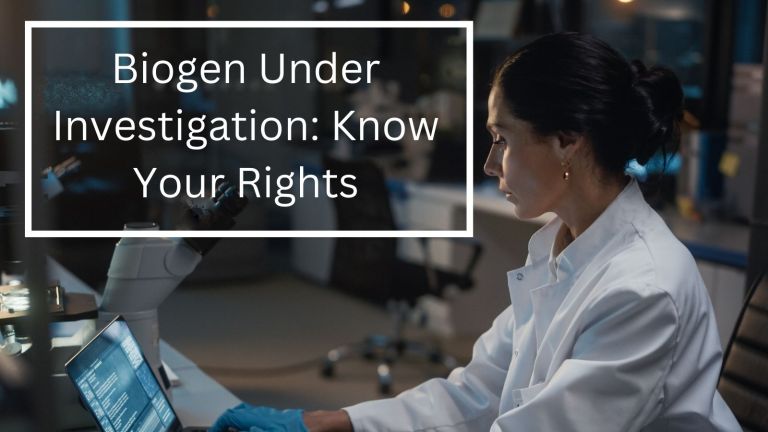The U.S. Securities and Exchange Commission (SEC) operates an enormously successful whistleblower award program. In just ten years, it has paid out over $1.3 billion to individuals who have helped the SEC prosecute hundreds of legal violations. Most award recipients are regular employees, but a small portion have been legal or compliance personnel. Compliance and audit personnel occupy a unique role in a company as they are responsible for ensuring that laws aren’t violated, or if there is a violation, that the company remediates appropriately by reporting to the authorities.
For attorneys working in compliance or audit, it is difficult, but still possible, to qualify for a whistleblower award. For non-attorneys in compliance or audit, the rules are more relaxed, but there are still a number of restrictions that have to be carefully navigated to become eligible for an SEC whistleblower award. The upshot is that prospective whistleblowers in compliance or audit should proceed with caution and make sure they get tailored advice before taking any steps towards reporting.
The Rules for Outside Counsel
Outside counsel are only eligible for SEC whistleblower awards in limited circumstances. When dealing with outside counsel, the analysis is a two-step process. First, we must determine whether the circumstances of the case trigger any of the SEC’s prohibitions on eligibility, and second, we must evaluate whether any exceptions apply.
The Prohibitions On Eligibility
When it comes to the SEC rules on whistleblower eligibility, there are two significant limitations that apply to all whistleblowers. These limitations will pose particular difficulty for outside counsel seeking awards. These limitations state that a person cannot qualify for a whistleblower award if their information was obtained:
- Through a communication that was subject to the attorney-client privilege; or
- In connection with the legal representation of a client.
Almost all communications between outside counsel and the company will be subject to the attorney-client privilege, or made in connection with legal representation. This means that there are very few circumstances in which outside counsel could obtain information that avoids triggering one of the SEC’s prohibitions. However, even if these prohibitions are triggered, the SEC provides exceptions to the prohibitions that will allow an attorney to qualify for an award.
The Exceptions
The SEC’s exceptions provide that the above prohibitions do not apply if the attorney is representing the company before the SEC and reasonably believes that providing the information to the SEC is necessary to:
- Prevent the company from committing a material violation that is likely to cause substantial injury to the financial interests of the company or its investors;
- Rectify a material violation that is likely to cause substantial injury to the financial interests of the company or its investors; or
- Prevent the company from committing perjury or fraud during an SEC investigation or administrative proceeding.
Other Considerations
In addition, even if outside counsel manages to qualify under one of these exceptions, they may be ethically prohibited from collecting an award due to state bar association rules. For example, the Committee on Professional Ethics of the New York County Lawyers’ Association has stated that a New York lawyer may not ethically serve as a whistleblower seeking a bounty from a client-related enforcement action given the conflict of interests that would be posed between claiming an award and representing the clients’ best interests. State bar rules are an important limitation as violating these rules could lead to disciplinary action or fines.
One scenario in which outside counsel may be able to claim a whistleblower award is where they are reporting a company who is not their client, and they have obtained the consent of their client before reporting. This could arise where a company obtains information that a competitor committed a securities law violation and the company wants to report the misconduct to the SEC. If outside counsel obtains the client’s permission, they may be able to submit the information to the SEC and qualify for a whistleblower award in the process.
The Rules for In-House Counsel
In-house counsel can only qualify for whistleblower awards in limited circumstances. Just like outside counsel, the analysis is a two step process.
Prohibitions on Eligibility
Just like any other whistleblowers, in-house counsel cannot provide information to the SEC that was obtained:
- Through a communication that was subject to the attorney-client privilege; or
- In connection with the legal representation of a client.
As in-house counsel often function as employees with non-legal duties, it is possible that they could obtain information during the course of their employment that arguably falls outside both of these scenarios.
For example, an in-house counsel who witnesses a legal violation while attending the annual corporate retreat may have a good argument that the information was not obtained in connection with legal representation. If this argument is accepted by the SEC, it would allow them to qualify as a whistleblower.
Exceptions to the Prohibitions
If in-house counsel obtains information in a manner that triggers one of the prohibitions, they may find it difficult to avail of any exceptions that would otherwise allow attorneys to become eligible for whistleblower awards. This is because the exceptions for attorney reporting provided by the SEC only apply to people who are representing a client before the SEC. In-house counsel rarely represent their employer before the SEC and typically hire outside counsel specifically for that role. This could lead to an odd situation where both in-house counsel and outside counsel become aware of a serious violation of securities laws, but only outside counsel can avail of the SEC’s exceptions to allow them report the information and claim an award.
Finally, in-house counsel will also have to comply with local ethics rules from their local bar association if they wish to report their employer.
The Rules for Non-Attorney Compliance and Audit Personnel
Non-attorney compliance and audit personnel are eligible for whistleblower awards in certain circumstances. Like all other whistleblowers, they cannot have obtained the information through a communication that was privileged, or in connection with legal representation of a client.
As a practical matter, these prohibitions pose less of a problem for non-attorneys as they cannot create attorney-client privilege and their day-to-day work is unlikely to be considered “legal representation.”
Nevertheless, given the important work compliance and audit personnel do in investigating violations and ensuring compliance, the SEC has placed limitations on when they can claim awards. As a result, compliance and audit personnel can only claim a whistleblower award if one of the following three criteria apply:
- They have reported the information to the audit committee, chief legal officer, chief compliance officer or a supervisor, and 120 days has passed since they have done so;
- The whistleblower reasonably believes immediate reporting is necessary to prevent substantial injury to the entity of investors; or
- The whistleblower reasonably believes the company is engaging in conduct that will impede an investigation of the misconduct (e.g., destroying evidence).
If one of these criteria applies, the employee can report to the SEC and will be eligible for a whistleblower award. If they fail to meet one of these criteria, their award application will be denied even if the information was useful and led to a successful enforcement action.
Conclusion
Attorneys or compliance personnel who are thinking of reporting would be wise to familiarize themselves not just with the rules of the SEC whistleblower program, but also applicable state bar rules if they are considering reporting. The above analysis is only an introduction to the topic and is no substitute for experienced and tailored legal advice. Getting sound advice could make the difference between a lucrative award and a costly misstep.
The Author
John Peterson is the Managing Attorney of FBR, a boutique firm in New York focusing on securities laws and whistleblowers. John has worked for almost a decade on financial crime, corruption and FCPA cases around the globe. He regularly acts as an expert commenter in business and legal media on corporate crime, whistleblowing and other international corruption issues.

















